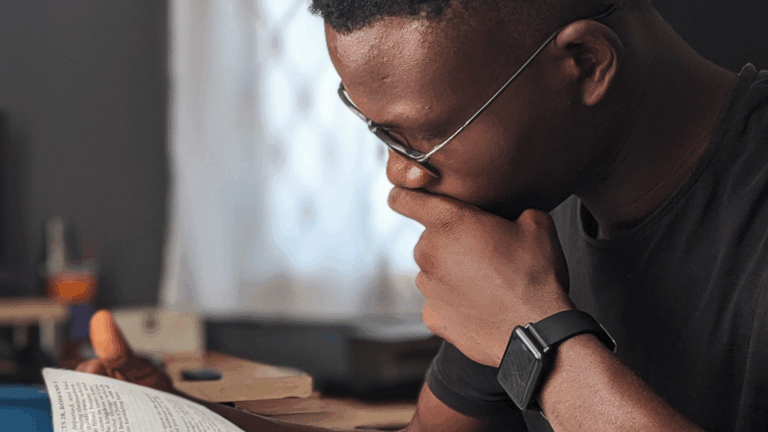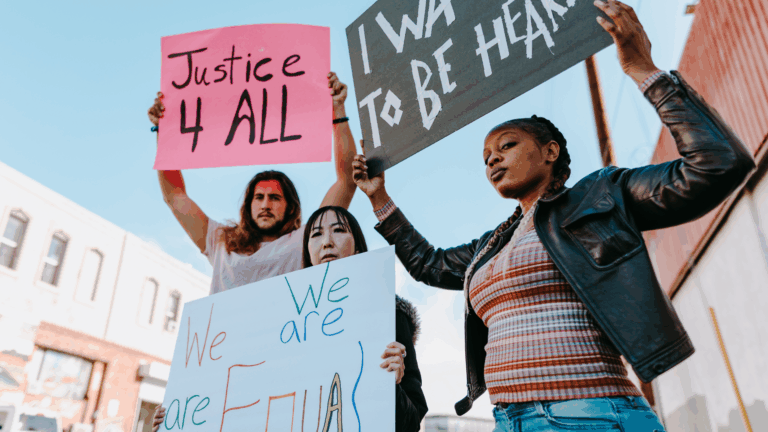This story comes from Cyrus Eaton, Dean of Spiritual Formation & Campus Chaplain at Abilene Christian University. Watch the full interview, read Cyrus’s story, see the difference your giving has made over the past five years, and celebrate with us all that God has done.
How have you been able to use your training with Equip to better minister to gay people?
My time with Equip has, for lack of a better term, helped me “normalize” my friendships with those who experience same-sex attraction.
A student recently opened up to me about his experience with same-sex attraction and also shared at length some of their journey and the struggles that have come with it. One of the things he shared with me was how encouraged he was in our time together, but also how some of his other friends didn’t know how to respond when he shared this intimate part of his story with them. And so he asked me, “What do I tell them when they ask me, ‘How am I supposed to treat you, or act around you?’”
I immediately felt sad for him as I imagined this moment, and I remembered some of my early conversations with Equip where we talked about normalizing friendship, normalizing brotherhood, and that there is no reason we should treat someone who has this experience differently in these contexts. If we do, we are just reminding them of the lie that they have believed, that something is wrong with them and they aren’t worthy of love and connection. When we treat them differently, we are acting out of fear of something we need not be afraid of.
How did you first learn about and connect with Equip?
I was connected to Equip through friends and ministers in Nashville who were aware of the work Equip was doing with churches and communities of faith. This must have been three or four years ago, but what I saw in Equip was that they were taking the first steps in doing something that I had not seen modeled well within the Church. They were helping communities of faith focus inward examine themselves and their practices, and evaluate where they had failed to love and lead sexual minorities in their church and in their communities well. The conversation they were leading was not how to fix those who are different than you or who don’t agree with you, but rather where are we, as followers of Christ, are missing it in our personal lives, in our homes, and in our communities, not allowing Christ to lead us into understanding, empathy, and relationship with sexual minorities and those who experience same-sex attraction.
How has Equip partnered with your ministry?
In my previous campus ministry role, Equip partnered with my office on at least three occasions. Through Equip we hosted a weekly small group, or support group, for men who experience same-sex attraction, we hosted a three part conversational series on campus for all students, and Equip also led our entire Student Life Department through a training.
The weekly support group was something I was most encouraged by, and I think it was equally encouraging for the students who participated. I still keep in touch with these men who gathered weekly to focus on brotherhood and spiritual friendship.
In an effort to help model conversations around sexuality, dating, marriage, and singleness, Equip partnered with our chapel program to help lead a chapel series that we called “SNL- Sex ‘N Lies.” We made sure our conversation on sexuality included all aspects of our lives: singleness, purity, dating, friendship, and sexuality. It was so important to us that we not focus solely on homosexuality or sexual orientation as Christians tend to do, but rather focus on how we are all affected by sexual brokenness of every kind. If we struggle to talk about sexuality and every form of sexual sin, it’s ignorant for us to believe we will have healthy and constructive conversations around homosexuality.
Equip also hosted a training for all members of Student Life and led our entire team deeper into conversations about better leading our campus, not just conversationally but relationally as well. This training was perhaps the first healthy conversation that many of my colleagues had ever had around same-sex attraction or homosexuality. What I believe Equip helped create in our office through Pieter’s story and leadership is a humanization of the “problem” which so many in our communities of faith have distanced themselves from. Instead of looking at these complex conversations as problems we are meant to find a solution to or brokenness that requires fixing, we see that at the root these are people who respond to love. I believe Equip brought human dignity back into the equation for many of my colleagues.
What has been most powerful about the training and support Equip has provided?
The relational security that Equip provides as they lead others into some of the toughest conversations and most challenging practices is perhaps one of the most powerful elements that Equip provides through their training. I have seen Equip lead while allowing myself, students, and other colleagues of mine to be fully ignorant as they stepped into the spaces they were leading. This relational security allowed people to be okay with what they didn’t know, or how complex the conversation really is, and to not have the answers is okay when working on having the right posture.
At what moment did the importance of this work at your ministry “click” and why?
Recently I was reminded just how unsafe our communities of faith have been for those who want to wrestle with their experience with same-sex attraction. While we have done this unintentionally, we have created a large gap within our communities of faith where those who are struggling with almost any questions or experiences related to same-sex attraction feel as though they have no one to talk with or walk with. We cannot say “come as you are” and fail to give individuals who want to follow Jesus wholeheartedly the space to be vulnerable and transparent about their life experiences. We have allowed fear to create too much distance between us and those who have a life experience we may never be able to relate to. What Equip is doing helps address the gap that we have put between us and some of the brothers and sisters we have not loved well in some of their most challenging moments.
What advice would you have for pastors who want to better minister to gay people in their church?
This is a conversation that is sometimes easy to “forget” about. Yet this one has so much weight in our current cultural climate that you must give yourself over to the process of self-education. Be committed to growing in understanding and empathy for those who experience same-sex attraction and want to hold to a historic sexual ethic, as well as growing in understanding and empathy for anyone who identifies as a sexual minority. This doesn’t mean you have to become an expert, but rather that you care enough to understand and work to instill value, worth, and human dignity instead of unintentionally take it from them.
As ministers, we should be convicted by the reality that there may be those who are afraid to approach us with their experiences and their questions. And I believe we should lead others in ministry to model this level of humility and understanding as we read books, listen to teachers, and, most importantly, listen to the hearts and experiences of those for whom this is their story.
Give toward our work today so we can continue to train pastors like Cyrus and make our churches places where gay people can belong and thrive according to a historic sexual ethic.






